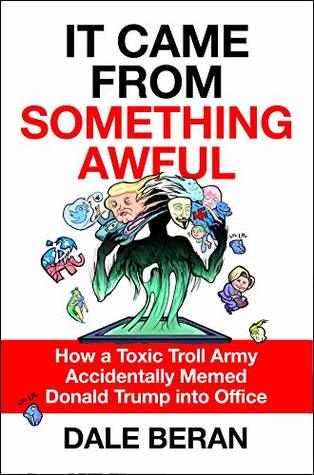More on this book
Kindle Notes & Highlights
by
Dale Beran
What we have is total domination by the pop culture matrix, by the mass media matrix. That’s the future of the world.”3
Though most of 4chan’s trolls were anonymous, we know a great deal about one of them. Andrew “weev” Auernheimer embodied each of 4chan’s historical transformations: from meme creator, to troll, to hacktivist, then, finally, to neo-Nazi figurehead of the alt-right.
A few months earlier, Thiel had received funding from the CIA’s venture capital arm to start Palantir. Palantir would profit (immensely) from acquiring as much data as possible about people and selling it to large institutions, mostly the government and law enforcement. According to internal documents leaked by TechCrunch in 2015, “as of 2013, Palantir was used by at least 12 groups within the US Government including the CIA, DHS, NSA, FBI, the CDC, the Marine Corps, the Air Force, Special Operations Command, West Point, the Joint IED-defeat organization and Allies, the Recovery Accountability
...more
Mercer also funded a vast urine-hoarding project. One of the only candidates he promoted for public office before Trump was a fringe scientist in Arizona who has collected thousands of samples of human waste to search for the secret to eternal life.7
Like Cernovich and Damigo, through a mix of behavioral issues, foolish ideas, and lack of trying, he was failing at real life despite his expensive education. And so Kessler retreated into a fantasy of self-justification, also known as blogging.
know? Or, as the writer Milan Kundera put it, “one morning (and it will be soon), when everyone wakes up as a writer, the age of universal deafness and incomprehension will have arrived.”
To many, the advent of the alt-right and Bannon’s social media machinations meant that the utopian dreams of the early internet creators had been naive; that their efforts to connect people had instead created, as one writer put it recently, “a nightmare machine.”4 But I think something different is going on. If we’re worried that our communications networks are becoming clogged with human misery, we might look to the misery rather than the networks.


